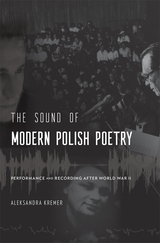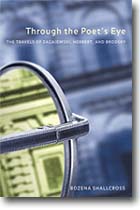
The leading Polish poet still residing in his native land, Zbigniew Herbert as not been the subject of a book-length study in English until now. Stanislaw Baranczak, himself a poet, critic, and translator, emigrated from Poland only in 1981, and is therefore eminently qualified to supply a politico-cultural context for Herbert while describing and analyzing the texts and themes of his poems.
Herbert's poetry is based on permanent confrontation--the confrontation of Western tradition with the experience of a "barbarian" from Eastern Europe, of the classical past with the modern era, of cultural myth with a practical, empirical point of view. Baranczak illustrates these oppositions by examining, first, the complex relations between "disinheritance" and "heritage" as they appear in Herbert's work on various structural levels, from symbolic key words to lyrical characters; second, the forms and functions of Herbert's "unmasking metaphor"; third, his uses of irony; fourth, his ethical system, which enables him to be both ironist and moralist. Baranczak pays special attention to irony as the most conspicuous feature of Herbert's poetic method.
A Fugitive from Utopia makes Herbert's poetic ideas fully accessible to the general reader, and will also be of interest to students of Polish literature, of East European culture and society, and of modern poetry. Those who have already encountered Herbert's poetry in one of the several translations into English currently available will welcome this lucid explication of his work.

An illuminating new study of modern Polish verse in performance, offering a major reassessment of the roles of poets and poetry in twentieth-century Polish culture.
What’s in a voice? Why record oneself reading a poem that also exists on paper? In recent decades, scholars have sought to answer these questions, giving due credit to the art of poetry performance in the anglophone world. Now Aleksandra Kremer trains a sharp ear on modern Polish poetry, assessing the rising importance of authorial sound recordings during the tumultuous twentieth century in Eastern Europe.
Kremer traces the adoption by key Polish poets of performance practices intimately tied to new media. In Polish hands, tape recording became something different from what it had been in the West, shaped by its distinctive origins behind the Iron Curtain. The Sound of Modern Polish Poetry reconstructs the historical conditions, audio technologies, and personal motivations that informed poetic performances by such luminaries as Czesław Miłosz, Wisława Szymborska, Aleksander Wat, Zbigniew Herbert, Miron Białoszewski, Anna Swir, and Tadeusz Różewicz. Through performances both public and private, prepared and improvised, professional and amateur, these poets tested the possibilities of the physical voice and introduced new poetic practices, reading styles, and genres to the Polish literary scene. Recording became, for these artists, a means of announcing their ambiguous place between worlds.
Kremer’s is a work of criticism as well as recovery, deploying speech-analysis software to shed light on forgotten audio experiments—from poetic “sound postcards,” to unusual home performances, to the final testaments of writer-performers. Collectively, their voices reveal new aesthetics of poetry reading and novel concepts of the poetic self.

READERS
Browse our collection.
PUBLISHERS
See BiblioVault's publisher services.
STUDENT SERVICES
Files for college accessibility offices.
UChicago Accessibility Resources
home | accessibility | search | about | contact us
BiblioVault ® 2001 - 2024
The University of Chicago Press









